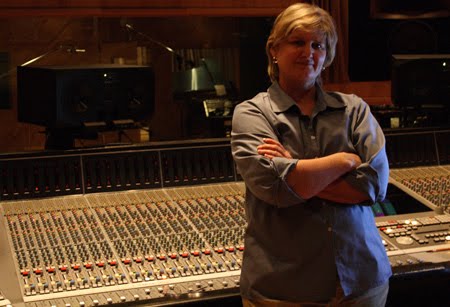I have had several inquiries lately about session work, both for vocalists and musicians, so I thought I would address it here. If you are looking to break into session work, there are two very important things to keep in mind.
STUDIO performance is very different from LIVE performance!
In the studio, you do not have the benefit of a visual performance to sell the emotion of the song or to hide behind. Studio musicianship requires great technical skill as well as on the spot creativity. There is no rehearsal; no learning parts that someone else created. Even though the song is written, and maybe even arranged, prior to walking into the studio, it is the job of the players and singers recording the songs to bring them to life!
Time is Money! As an independent producer, I have total control over the musicians and vocalists I work with in the studio. I also have access to an amazing array of talent. I will always hire singers and players who can make me look good and save me money. That means those who: a) show up on time and come prepared; b) take direction well and have a large “bag of tricks” ; and, c) can understand and communicate musical ideas and emotion.
Music is an exchange of emotion. It is not enough to sing or play on pitch and in rhythm; you must also be able to make the listener feel something while listening to your performance. (That is what separates the singers from the artists!)
Here is my advice to those of you wanting to break into studio work.
Musicians:
1. Learn to read charts.
2. become fluent in as many different styles of music as you can.
3. Learn to play well with others.
4. Learn to communicate your ideas and participate in the creative process.
5. Get experience however you can. Play for free. Ask for copies of your session work to study to improve your game and showcase your work.
Singers:
1. Learn your instrument. Figure out what you do best (vocal “tricks”, “sweet spot” of your range, stylistic phrasing, etc that makes you unique).
2. Learn to “key” songs.
3. Practice not just singing songs, but interpreting them.
4. Learn to sing harmony parts.
5. Learn to read charts (not necessary, but helpful)
Both:
1. Learn to show up ON TIME. Again, time is money.
2. Learn to play well with others. In the studio you must be a part of the team. You are not the star of the show. Even if you’re having a bad day, the songs still need to sound great.
3. Every song and every client is important. (You can’t sing or play on only the good songs. Well, I guess you can, but you won’t make much money at it.)
4. Have fun! There are a lot worse ways to make money, spend your time, and hone your craft!
It is hard to break in to session work, even if you are talented. You must be willing to stand on the sidelines observing until you get your chance to get in the game. I suggest that you hang out at sessions every chance you get. Go to songwriter’s nights and let them know you are available for demo work. Get to know musicians, engineers, studio owners, and songwriters. Offer to work free if you get the chance just to show what you can do. Record a sampler to showcase your talent. People are always looking for new voices, yet always lazy about changing what is not broken, so you just have to ask and keep your place in line until you get a chance to prove yourself.
Lastly, get realistic and honest feedback from someone who knows about whether or not you actually have the talent to be a demo singer or a studio musician. I promise you – not everyone who sings or plays an instrument can.
Monday, March 15, 2010
So You Want to Get Session Work?
Labels:
artist,
cd,
recording,
recording music,
songs,
songwriter,
songwriters,
songwriting,
studio
Subscribe to:
Post Comments (Atom)


No comments:
Post a Comment